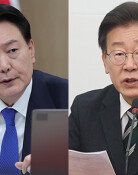Japanese export controls destabilize Korea-U.S. alliance
Japanese export controls destabilize Korea-U.S. alliance
Posted July. 15, 2019 07:39,
Updated July. 15, 2019 07:39
“Orders from our Japanese client suddenly dried up. We weren’t told exactly why but had a suspicion,” said a friend of mine who runs a small business. “The overall atmosphere in the Japanese society has changed 180 degrees. That is what’s more fearsome than Japan's export controls.”
It is true that the mood in Japan has taken a completely new turn, which indicated that the recent economic retaliation by Japan will expand to other areas, such as politics, society, and culture, rather than remaining a one-off event. This is not a reason to make a huge fuss over. Such an event could happen between Korea and Japan – even more likely between neighboring countries that can easily fall into a hostile relationship. However, the recent development should serve as a diplomatic wake-up call for the Moon Jae-in administration, which has adopted the anti-Japan sentiment as a governing tool based on the belief that mistreatment of Japan is acceptable given the country’s problematic past.
What’s troublesome now is that there seems to be no resolution on the horizon. The Japanese government has built up justifications for the drastic trade measures and deployed them at a critical timing. It doesn’t look like Japan has a plan to withdraw such measures in the near future. Meanwhile, the U.S. holds the key to the current situation as it has the power to reverse what’s been done by Tokyo. Yet, Washington has shown no sign to do so.
Some say that the U.S.’ hesitation has resulted from the potential benefit that the struggle of the Korean semiconductor industry ranked No. 1 in the world might have for the U.S. semiconductor industry. However, the U.S. does not simply move based on its own economic interest. There are reasons why Washington is less than eager to be involved saying that this matter should be resolved between Seoul and Tokyo despite the SOS from several Korean government officials hurriedly visiting Washington D.C., including Kim Hyun-chong, the second deputy chief of the National Security Office.
Tripartite security alliance among Korea, Japan, and the U.S. based on Korea-U.S. and U.S. -Japan bipartisan relations has been at the core of the U.S.’ strategy to keep China in check. Accordingly, Washington has been averse to conflicts between the two Asian countries, which undermine the three-way cooperation, and worked as a mediator. This is why the lukewarm response from the U.S. this time around is quite alarming. It might be a sign that Washington has chosen its relationship with Tokyo over the one with Seoul or it could be a warning to Seoul for calling for the Korea-U.S. alliance only when needed for Korea’s national interest.
The real intention of the U.S. will be revealed going forward. But what has become clear is that unilateral alliance in which one party keeps receiving while the other keeps on giving cannot exist. Perhaps Seoul has neglected its duties as an ally while enjoying the benefits of strong security provided by Washington. Korea’s walking a diplomatic tightrope between the U.S. and China is practically a betrayal of the alliance with the U.S. Now is a critical time to reflect on what the duties of alliance are before the Japan's tighter export regulations becomes a prelude to a disintegrating relationship between Korea and the U.S. By sending troops to the Strait of Hormuz or taking other measures, Seoul must remind Washington of the values in the bilateral alliance that has been formed with jointly shed blood.
phark@donga.com







